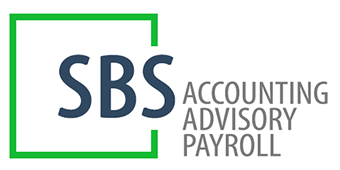On June 6, a tax package with a number of changes was announced, including significant revisions to value-added tax (VAT), personal income tax, corporate income tax, special profits tax, local business tax, customs and excise tax, and NETA (public health products tax). The following is a summary of the main tax categories that taxpayers, especially businesses, should expect to see changes in starting in 2024. In many cases, however, the changes could take effect as early as 2023.
Personal Income Tax – Measures at the Legislative Level Under Emergency Conditions
Proposed Individual Income Tax Amendments to Take Effect in 2023 at the Earliest
As of August 1, 2023, the rules already in force under the Decree on Emergency Situations will be incorporated into law, providing that the family tax credit for individuals caring for a permanently ill or severely disabled person will be increased by 66,670 hauf per month per eligible dependent. This means an additional 10,000 HUF per month of tax for each eligible dependent.
A tax credit for mothers under 30 will also be incorporated into the law effective August 1, 2023, and will remain applicable after the end of the emergency. Young mothers who are entitled to the family tax credit under the PIT law with respect to a child by blood or adoption, or an unborn child, will be entitled to the benefit for mothers under age 30. During the month of entitlement, the mother is exempt from payment of personal income tax on income included in the consolidated tax base as detailed in the Act. The tax credit is available up to the average gross earnings of full-time employees at the national economic level, as published by Statistics Hungary in July of the previous year of the current year. This is 499,952 Hungarian francs per month in 2023.
From August 1, 2023, the Personal Income Tax Law will provide that employees will receive 30 HUF per kilometer tax-free for commuting.
Proposed Personal Income Tax Amendment from 2024
According to the bill, after January 1, 2024, earnings from company assets received by former members in the course of estate liquidation proceedings upon dissolution of the company, whether in cash or in kind, will be taxed as other income, without legal succession.
– .
Fiduciary Trusts
According to the bill, private settlors and transferees of assets to private foundations would receive sale income if the assets are valued at the time of creation and transfer, i.e., the current market value of the transferred assets is reported (instead of the purchase price). The transfer income is the value of the transferred asset as recorded in the accounting by the transferee (trust or private foundation); the individual’s income is reduced by the acquisition cost of the asset. Depending on the subject of the mediation or transfer of the asset, the income is the gain on the sale of real estate, the gain on the transfer of movable property, and the gain on foreign exchange. This tax must be declared on the individual’s annual income tax return and paid by the due date.
However, the value of assets from the disbursement of property by a trust or private foundation remains exempt from taxation for the beneficiary if the source of the value is the capital of the trust or foundation (provided that the beneficiary status is not acquired by the individual in exchange for the provision of goods or services). However, if the beneficiary receives payment from the yield on assets managed by the trust/foundation, the beneficiary will continue to be taxed under the rules governing dividend income. For individual beneficiaries, there is no change in the fact that income derived from long-term investment accounts is exempt from taxation. In the absence of an assessment, the settlor/transferee still has no income at the time the asset is established/transferred. However, this means that the beneficiary’s tax base will be higher when assessing dividend income when the assets (or proceeds from the sale of assets under management) are later paid out.
In the case of a dividend-in-kind, the beneficiary would be able to take the value recorded in the accounting books of the trust or private foundation at the time of the dividend-in-kind as the acquisition price without any value adjustment; in the case of a non-cash dividend, the market value at the time of acquisition would be considered.
The bill also clarifies that the free use of assets belonging to a fiduciary trust or private foundation (e.g., automobiles, boats, real estate) generates tax-free income for the individual, but that personal income tax is imposed on any costs or expenses claimed with respect to property in a controlled trust/private foundation.
Personal income tax is imposed with respect to property of a controlled trust/private foundation Tax on income is imposed on assets held in a trust or private foundation and must be declared and paid as a liability in the month the expense or expense is recognized.
Social insurance premiums and social contribution taxes
Effective August 1, 2023, it is proposed that, in the case of other income from the payor, if the payor does not assess personal income tax in advance, the individual will be obligated to pay social contribution tax and will be required to assess, declare, and pay social contribution tax on a monthly basis.
Under the provisions that will take effect on November 1, 2023, guest workers employed under the Law on the Employment of Guest Workers in Hungary will not be considered labor market entrants and therefore will not be entitled to the social contribution tax credit for labor market entrants.
Certain income earned by persons who are foreigners under the Social Security Act – such as income from withdrawal from business, income from loans of securities, dividends, dividend base, foreign exchange gains, income classified as other income under the Personal Income Tax Law, income earned as benefits other than wages or certain defined benefits – are currently not subject to social insurance contributions. The bill would provide for the taxation of foreign income under the Social Security Act. Under the bill, the exemption of foreign nationals from social insurance premium taxation under the Social Security Act would not apply to foreign guest workers.
Effective August 1, 2023, the regulations on the deduction of training contributions for dual training linked to participation in vocational and occupational education will be harmonized and linked to the actual activity performed. With this amendment, tax credits will be allocated on a pro rata basis. The tax credit will be calculated by multiplying the pro-rated cost per working day by the ratio of the amount of vocational training provided on that day to the number of working days in the month in question (excluding working days as defined by law) and the total number of working hours per day (7 hours per day for underage workers). This avoids the tax credit being used at the maximum amount even if the amount of vocational training provided on a working day is only a fraction of the total number of hours (or 7 hours) worked in a day.
Under the bill, the social security and social security tax exemption provisions would apply to suspensions of activity of a sole proprietor beginning after December 31, 2023, only if the sole proprietor is inactive for the entire period of the month in question. If the sole proprietor does not cease activity for the entire month, social insurance premiums and social insurance premium tax shall be paid for the entire month. The proposed amendment would clarify that when a sole proprietor becomes inactive, the basic contribution amount earned prior to the inactive status based on the insurance relationship prior to the inactive status should be considered as earned on the day before the inactive status begins.
The bill clarifies that the monthly family contribution allowance that a sole proprietor who is a flat-income earner may claim is 15% (if positive) of the difference between the monthly family allowance and the monthly amount of income assessed as flat-income, which is less than the amount of contributions payable on the monthly contribution basis assessed under the cumulative method.
After August 1, 2023, an individual receiving a disability allowance or an individual allowance for the blind will also be considered to be a person with diminished capacity for work if he or she can duly prove this.






Comments are closed.